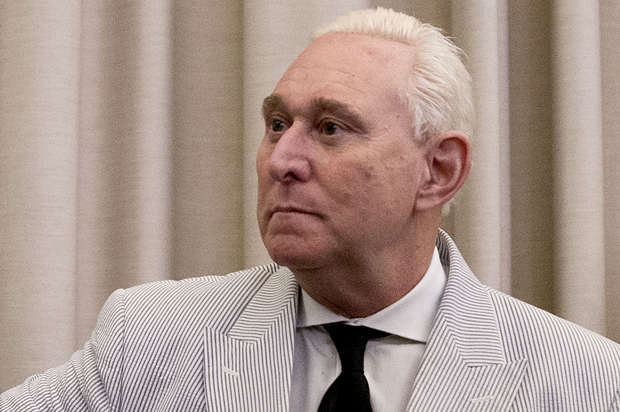Roger Stone, an unofficial adviser to Donald Trump’s campaign, on Wednesday dismissed rumors that he had advance warning of last Friday’s release by WikiLeaks of thousands of hacked emails from Hillary Clinton’s campaign chairman, John Podesta.
Stone told NBC News that he has “back-channel communications with WikiLeaks” through a “mutual friend” with the website’s exiled founder and editor-in-chief, Julian Assange.
“But they certainly don’t clear or tell me in advance what they’re going to do,” he clarified.
“If I were on one of those committees,” he added, “I would demand proof because it appears to me that the CIA and Homeland Security are acting in a partisan nature.”
“I think it’s a reasonable assumption to — or at least a reasonable conclusion — that Mr. Stone had advanced warning and the Trump campaign had advanced warning about what Assange was going to do,” Podesta told reporters on Tuesday evening.
U.S. intelligence officials have maintained that “only Russia’s senior-most officials could have authorized” the recent high-profile hacks. For his part, Assange has argued the opposite. So, too, has the GOP presidential nominee.
“I don’t think anybody knows it was Russia that hacked into the DNC,” Trump said during the first presidential debate, referring to thousands of Democratic National Committee emails released by WikiLeaks on the eve of the National Convention and ultimately leading to former chairwoman Debbie Wasserman Schultz’s resignation. “She’s saying Russia, Russia, Russia, but I don’t know. Maybe it was. It could be Russia, but it could also be China. It could also be lots of other people. It could also be someone sitting on their bed that weighs 400 pounds.”
Trump’s campaign has often appeared unusually cozy with the Russian government and President Vladimir Putin. In an opinion piece for Sputnik — Russia’s state-controlled news company — published on Thursday, Trump campaign foreign policy adviser Carter Page called Russia “an essential piece in the puzzle for solving many of Washington’s most pressing geostrategic challenges.”
Page further bemoaned the U.S. government’s “complete disregard for Russia’s interests.”
WikiLeaks released a sixth batch of Podesta’s hacked emails on Thursday morning.
Christopher Miller, a journalist in Ukraine, noted that RT America tweeted a link to the release before WikiLeaks’ account had. Though the time stamp on the tweet doesn’t necessarily reflect the moment of the release, Miller points to the difference as evidence of WikiLeaks’ collusion with the Russian government:
Earlier today, @RT_com tweeted & pubbed a story on fresh @wikileaks Podesta emails dump before WL posted them to the site & tweeted a link. pic.twitter.com/nHb0GIq4Am
— Christopher Miller (@ChristopherJM) October 13, 2016

